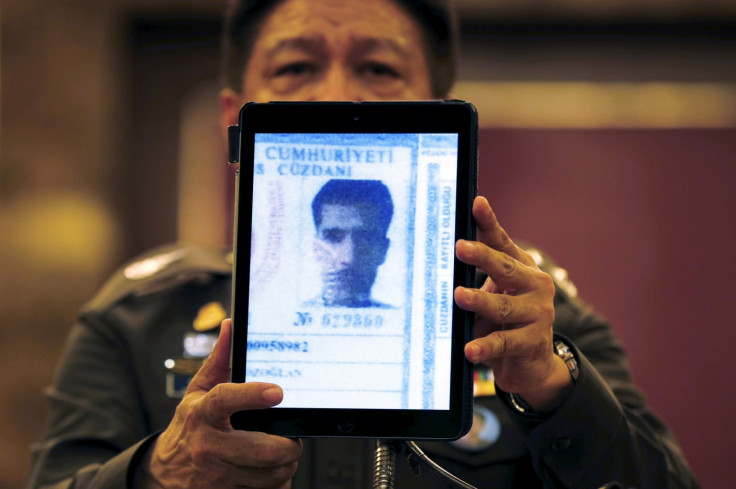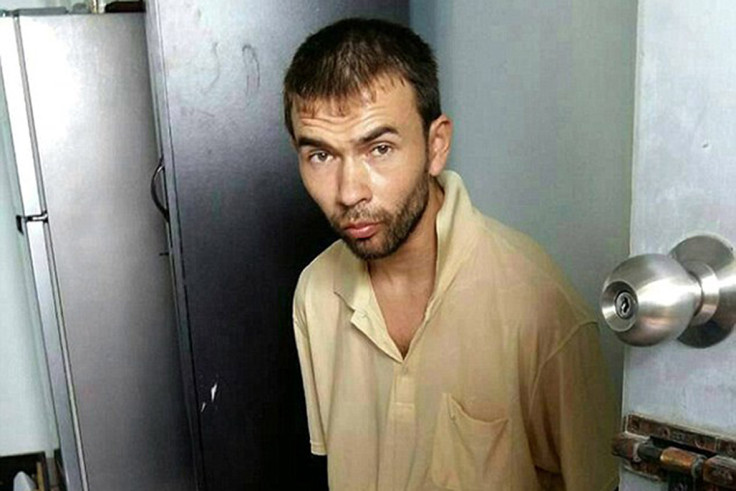Bangkok bomb: Turkish-speaking suspect suggests Uighur connection lead

Thai police said fingerprints samples taken from a man arrested on the Cambodian border in connection with the Bangkok bombing link him to explosives found at an address in the capital where another suspect was held at the weekend.
National police spokesman Prawut Thavornsiri said officers could confirmed the man captured in the eastern Sa Kaeo province trying to flee the country, had handled a bottle containing bomb-making material used in the 17 August blast at the Erawan Shrine.
"We can confirm that the man's fingerprints match with those found on a bottle that contains a bombing substance," Prawut said in a televised address. "This man is important and is related or conspired with people who committed [the attack]".
"He could be the one who brought the bomb out of this apartment or he could have brought the bomb to the crime scene," he said, adding DNA tests were also being conducted.

The bottle was found with explosive material matching those used in the attack and a stash of travel documents, including a fake Turkish passport, at a flat in an eastern suburb of Bangkok raided by police who arrested a 28-year-old staying at the premises at the weekend.
Thailand's national deputy police chief, Chakthip Chaijinda, said the second suspect also speaks Turkish and requires a translator.
Earlier, prime minister Prayut Chan-o-cha referred to the second man arrested as the "main suspect" suggesting he was the same man in a yellow shirt filmed by a security camera leaving a backpack at the site of the explosion that killed 20 people and injured more than 120. Authorities have not confirmed the identity and nationality of the two men, saying only that they are both foreign nationals.
No one has claimed responsibility for the attack, sparking a wide range of theories over possible motives for it. But many are suggesting Uighur militants from north-western China are behind the attack, and authorities seem to have been following that trail.
Uighurs are a Turkic-speaking Muslim ethnic group related to Turks that have been leading a separatist struggle in China's north-western region of Xinjiang. They have reasons to be angered at the Thai government, which recently handed back to Beijing more than 100 Uighur migrants who had sought asylum in Thailand.
The bombing target, the Erawan Shrine, is a Hindu site and is also popular with Buddhists and tourists especially from China. Most of the victims were Thai, but at least four Chinese as well as nationals from Hong Kong, UK, Indonesia, Malaysia and Singapore were killed.
Earlier this week, Prayuth the head of the military junta ruling over Thailand, suggesting ties between the bombers and traffickers smuggling Uighurs out of China. After the second arrest was made, Thai police's Crime Suppression Division has been ordered to closely monitor the Uighur community in the capital, security sources told the Bangkok Post.
One of the passports found in possession of the first suspect reportedly identified him as a Turkish national named Adem Karadag, although authorities said the document is most likely fake. Turkey is home to a large Uighur community.

Photos of another passport said to belong to the second suspect have been widely circulated by Thai media. The document identifies the man as Yusufu Mieraili, a-25-year-old from Uighur's heartland Xinjiang region, in China. The man pictured has a distinctive partially white beard similar to that sported by the suspect pictures as he was escorted by police after arrest. Authorities however said the passport images did not come from them. Police have issued an arrest warrant for several other suspects, including a Thai woman and her Turkish husband.
© Copyright IBTimes 2025. All rights reserved.






















